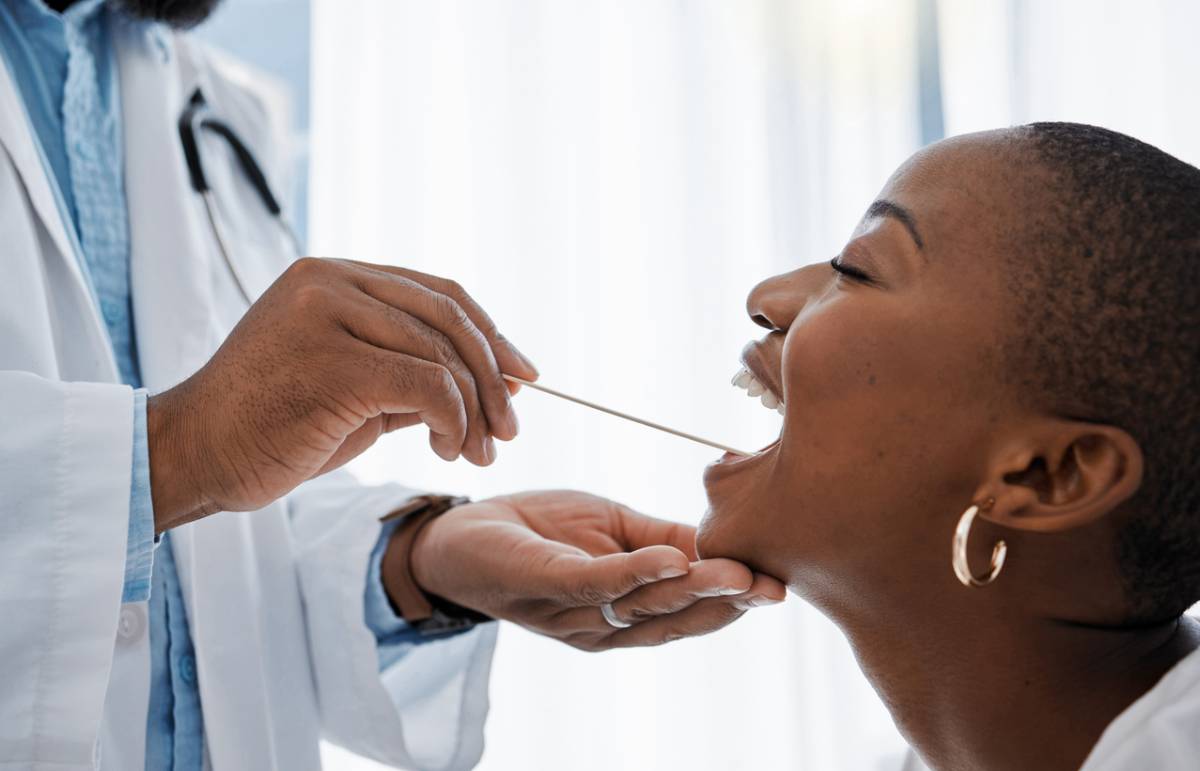During your oral exam, your dentist will check multiple aspects of your oral health. Of course, they check for cavities and tooth decay. But they also look for other concerns, such as lesions, sores, and signs of mouth cancer. So you might have them ask if you smoke. But can dentists tell if you smoke? And if so, how can they?
Why a Dentist Will Ask If You Smoke
Your dentist will be the main physician in charge of your oral health. So, it makes sense that they would want to know about factors that influence it. Few habits can put your oral health at risk as much as smoking does.
Smoking increases your risk of mouth cancer by an astounding 10 times. In addition, smoking can discolor your teeth. It also can disrupt your mouth’s microbiota. Normally, the bacteria in your mouth live in a type of balance with each other and your own cells. Smoking can throw off this balance, allowing some harmful species to thrive. The list goes on and on. In short, smoking does significant damage to your mouth, tongue, teeth, and gums.
Can Dentists Tell If You Smoke?
Even if you brush your teeth and wash your mouth out before your visit, a dentist typically can tell if you smoke. Nicotine stains are one of the surest giveaways. Bad breath also can give away a smoking habit. They can also look for oral health issues typically caused by smoking.
But the real reason a dentist should know if you smoke is because you tell them. There is no reason to hold back this information. Whenever a patient keeps information from a health care provider, they only increase their own risk. It is like blacking out portions of a photograph. Without the full picture, accurate diagnosis and treatment become more challenging.
Informing your dentist about your smoking can help guide treatments. Remember, a dentist should never judge you for your lifestyle. They are there to do their part in giving your oral health its best chances.
But, do not be surprised if they recommend quitting!
How Your Dentist Can Help with the Effects of Smoking
Above, we mentioned smoking hurts your oral health. However, it does not always lead to permanent damage. If you quit smoking, some of the damage can be reversed. Most dentists provide a range of treatments that can help restore oral health.
Teeth Whitening
Teeth whitening is a common treatment for patients who smoke(d). In many cases, stains from cigarettes will not go away with at-home brushing or even whitening. You need a professional-grade material to clear out those stains. Professional whitening can lift stains. However, if you continue smoking, those stains can return within months.
Dental Veneers
If your teeth are worn or severely stained, veneers may prove a better solution. These thin shells go directly over the affected tooth. They immediately restore its appearance. Furthermore, they provide extra stability to the tooth. This can help if your teeth are slightly worn away due to poor oral health. Continued smoking could eventually lead to stains on the veneers as well, though.
Periodontal Treatments
Smoking dramatically increases your risk of gum disease. While gum disease damage cannot be reversed, you can stop the progression. Gum treatments include root scaling and planing. This deep clean gets buildup and bacteria out from beneath the gums. Other gum treatments can include laser therapy and gum grafting. Quitting smoking will help these treatments prove more effective.
Crowns
After smoking for a lifetime, many people end up with severely worn teeth. While the smoke itself does not wear away at teeth, it strongly influences oral health. So smoking can indirectly result in teeth that are worn beyond recognition. A dental crown can cover that tooth and restore its look and function.
What About Oral Cancer?
Untreated oral cancer can result in death. However, early detection and treatment now results in about an 85% survival rate.
We see this as all the more reason to let your dentist know if you smoke. With this knowledge, they can recommend more frequent screening. Additionally, it can ensure they are on the lookout even between full screenings for the signs of cancer.
Fortunately, screening for oral cancer is quick and pain free. A typical (yet thorough) screening should take well under 5 minutes total.
Visit a Compassionate, Skilled Dentist Today
At Baseline Dental, we ensure our patients feel comfortable during every visit. Our dentist is here to help you thrive.


